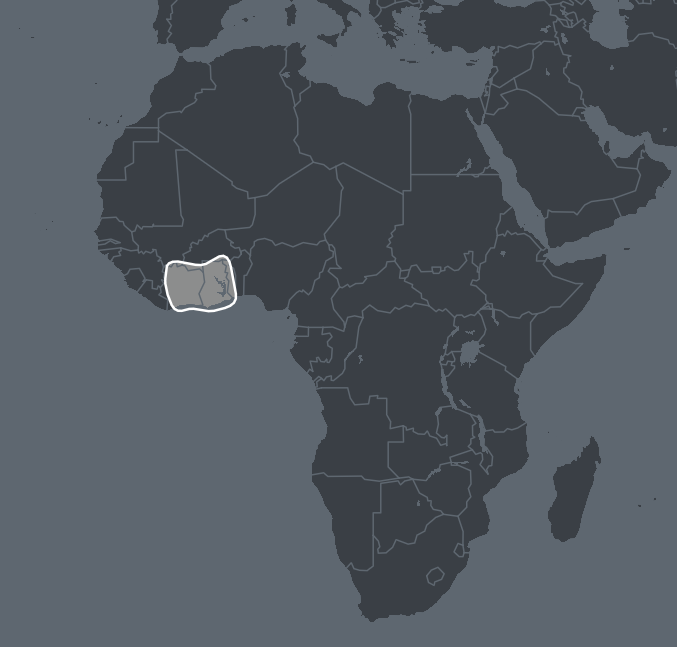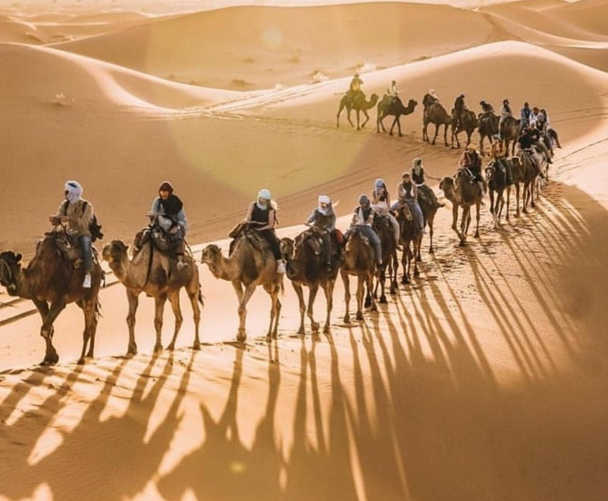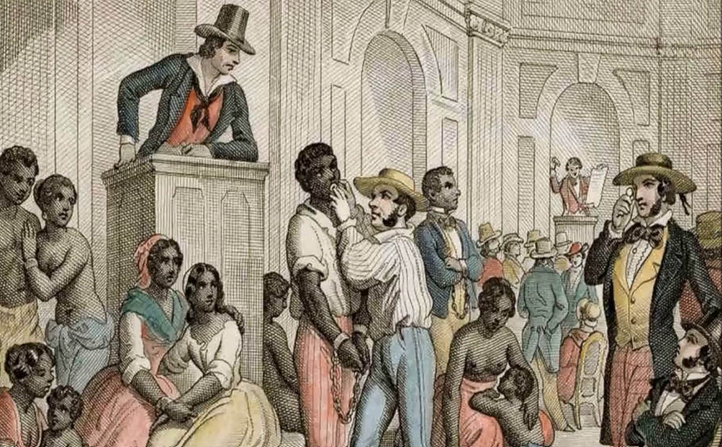What is Ivory Coast and Ghana DNA Ethnicity on Ancestry?
You may have been expecting to find African DNA among your results but were wondering if there would be any specific regions mentioned. The results have shown you have DNA from the Ivory Coast and Ghana region but where is that and what does it mean in regards to your ancestry?
Ivory Coast and Ghana DNA Region
As the area's name suggests the bulk of this very localized region falls within the African nations of Ghana and the Ivory Coast. This region however also falls heavily within most of Togo and has smaller border region populations in Burkina Faso, Benin, Mali and Guinea.

This is a west African region with a great deal of coastal influence and which sees a common DNA trend between three geographically close nations.
History of Africa
According to the paleontological record, it was the continent of Africa in which the first hominids developed. These early hominids were the first to walk in a bipedal motion and it is from them that eventually humans as we know them today evolved.
The fossil records suggest that homo sapiens were living in Africa between 260,000 to 350,000 years ago. Remains from South Africa, Morocco and Ethiopia seem to suggest that homo sapiens were already widespread throughout the continent during that time frame.
Ivory Coast History
A humid region, Ivory Coast does not offer much on the fossil record but finds relating to tools seem to indicate human habitation in this region between 15,000 and 10,000 BC or at least the Neolithic era.
First Records of Ivory Coast
It was the Berber traders from North Africa who first chronicled the region we know today as the Ivory Coast. These traders were active since early Roman times conducting trade caravans across the Sahara. They were moving commodities such as salt, gold, slaves and other such goods vast distances to and from major cities in Mali which sits just north of Ivory Coast.

A result of this trade into the region was the rise of Sudanic Empires who developed military might which allowed them to dominate their neighboring states. One such Islamic group that arose was the Ghana Empire to the north of Ivory Coast.
The Ghana Empire flourished from the 4th – 13th centuries with the regions we know today as Mauritania and Mali. This empire was followed by the Mali and Songhai empires who respectively controlled the region north of the Ivory Coast through the 16th century. Dense rainforest meant that the actual influence of these empires could not reach deep into the Ivory Coast but traders did make their way through the jungles.
Ivory Coast Empires
Originating mainly in Burkina Faso the earliest empire to have an actual effect in the Ivory Coast was the Muslim Kong Empire. Their influence reached down into the north-central region of the country by the early 18th century.
Earlier however an empire arose in Ivory coast which came from the east of their neighbors, Ghana. The Abron Kingdom established in the 17th century was a group who fled what we know today as Ghana to avoid the developing Ashanti confederation of Asanteman. Settling just south of the city of Bondoukou in the northeast of the country, the Abrons would soon begin to dominate the indigenous Dyula people of the region.
Bondoukou became an Islamic center of trade before other Akan groups fled Ghana establishing their own kingdoms which included the Baoule, Sakasso, Agni, Indenie and Sanwi.
French Rule
The French established their first settlement in West Africa during the mid 17th century in Senegal but they quickly expanded their influence in the region. Again the rainforest nature of the Ivory Coast held colonization at bay for some time but by the mid 19th century the French had established a foothold in the nation.
It was French Admiral Louis Edouard Bouet-Willaumez that first signed treaties with the kings of the Grand-Bassam in the 1840s. This placed them under the influence of a French protectorate and gradually this would spread throughout Ivory Coast.
Independence
The European rule under the French protectorate as so often occurs subjugates the native population while it enriches the foreign ruling classes. It was this over the course of a century that led Felix Houphouet-Boigny, the son of a Baoule chief, to form an agricultural trade union in 1944.
The colonial policy unsurprisingly favored the needs of the French plantation owners over the local farmers such as himself. Houphouet-Boigny quickly gained notice as actually elected to the French Parliament in Paris within a year.
Just a year later the French abolished forced labor practices and Felix established even greater influence within French politics creating a better working relationship between the two nations. By 1956 new acts were passed that removed voting inequalities and transferred several ruling powers to local governments rather than France.
On December 4th 1958 Ivory Coast became an autonomous member of the French community essentially gaining independence while still maintaining mutually beneficial trade with France. This also meant that the French presence in the country still existed although they were no longer the controlling power.
Ghana & Togo History of Slavery
The Ivory Coast although it practiced slavery internally did not take a big part in the Transatlantic slave trade. Ghana and Togo however did. As coastal regions these two regions that fall into this common DNA region did indeed supply slaves for the new-world as part of their economies.

The ominous moniker of “The Slave Coast” was applied to the southern coasts of these two nations and a few other regions. Europeans would make port in Ghana and Togo in search of slaves to transport across to the New World.
Where Did Your Ivory Coast and Ghana DNA Come From?
The reason this region spans the Ivory Coast, Ghana and Togo likely stems from Ghanaian refugees who fled the Ashanti confederation of Asanteman. Sitting either side of Ghana, Ivory Coast and Togo would be landing points for those fleeing and looking to reestablish themselves.
All three countries were also under French protectorate for an extended period of time which may also contribute to their ethnic uniqueness as a region. Those discovering their connection to this region whose families date back generations in the United States may well find their ancestors were taken from the region by slave traders.
Those with a higher percentage of DNA from this region may well have a more recent immigrant from this part of West Africa.
Can I Trace My African Ancestors?
As with all things genealogical, there is always a chance that you might be able to trace the origins of your African ancestors. This is of course dependent on a number of factors. Those in the U.S. who know their ancestors arrived as slaves centuries ago may find it difficult to find out exactly where they were taken from.
Due to historical instability in countries such as Ivory Coast and Ghana our understanding of the DNA population is limited. This means that unlike elsewhere in the world where we might be able to have a more pinpointed region of origin we are left with a more broad area.
Depending on how recent our Ivory Coast and Ghana region ancestors are, we may be able to find records to support who they were and why they or their descendants left the country. The further back we go generationally speaking it becomes harder to pinpoint exactly where our ancestor comes from.
Final Thoughts
The dense rainforests that cover much of this region have kept its population historically isolated which means outside influences only really had a big impact in the last few hundred years. There was localized movement between the nations as is evidenced by the common DNA found.
Link To or Reference This Page
We spent a lot of time downloading, cleaning, merging, and formatting the data that is shown on the site.
If you found the data or information on this page useful in your research, please use the tool below to properly cite or reference Name Census as the source. We appreciate your support!
-
<a href="https://namecensus.com/blog/what-is-ivory-coast-and-ghana-dna-ethnicity-on-ancestry/">What is Ivory Coast and Ghana DNA Ethnicity on Ancestry?</a>
-
"What is Ivory Coast and Ghana DNA Ethnicity on Ancestry?". NameCensus.com. Accessed on May 10, 2024. https://namecensus.com/blog/what-is-ivory-coast-and-ghana-dna-ethnicity-on-ancestry/.
-
"What is Ivory Coast and Ghana DNA Ethnicity on Ancestry?". NameCensus.com, https://namecensus.com/blog/what-is-ivory-coast-and-ghana-dna-ethnicity-on-ancestry/. Accessed 10 May, 2024
-
What is Ivory Coast and Ghana DNA Ethnicity on Ancestry?. NameCensus.com. Retrieved from https://namecensus.com/blog/what-is-ivory-coast-and-ghana-dna-ethnicity-on-ancestry/.
